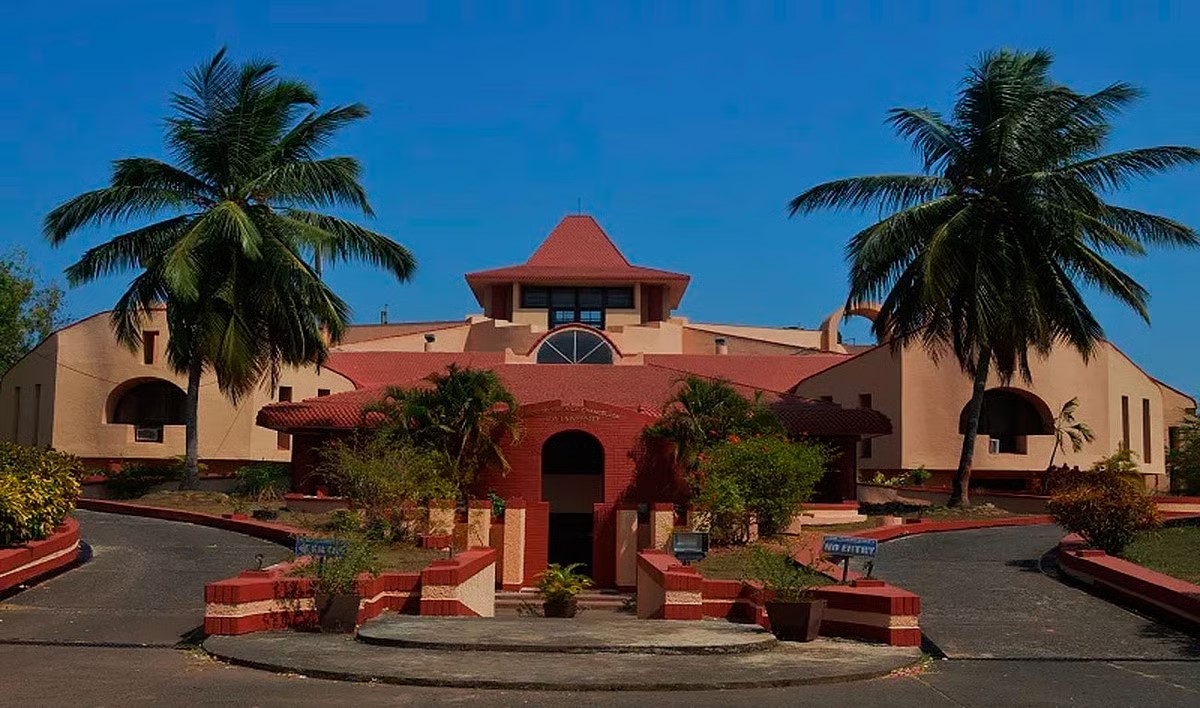Goa University can also be faulted for not studying Goa itself enough. Those who work on the subject, do so out of their own choice

There has recently been much debate over the Goa University, coming at a time just when it came up for accreditation. Controversy was raked up over domicile requirements in teaching jobs, or the student programmes which caused moral panic among some.
Maybe others connected with the varsity also feel a sense of anguish and demoralisation over this critique. It comes at the wrong time, over misplaced issues. Goa definitely expects much more from its first varsity (and, till the recent mushrooming of private 'universities' here, its only one). There might be many things wrong, or needing improvement with the institution. But those being raised from the rooftops might, one suspects, not even be among the most important. So, who sets the agenda?
One's mind goes back to almost exactly 40 years ago. In 1985, I found myself walking up the then still-being-built Goa Medical College buildings. The university was just getting started, and temporarily housed there. Dr Gopal Singh, the then Lieutenant Governor, had pushed aside all discussion and dissension, and simply gone ahead in getting the university started.
All the debates over its location, its structure, whether it would be a teaching or affiliating university, and if it would have sufficient students, were quickly forgotten.
We were readily accepted into the tiny university, after a modest change-of-faculty test. The new varsity also needed students in those times. Since then, for many of our generation, the university has shaped our lives and education.
It put us in touch with professors and visiting scholars, it shaped our vision. Its wonderful library helped us encounter the work of scholars who had worked on Goa, whom otherwise we wouldn't know. People like Robert S Newman, Alexander Henn, P. Lal of the Writer's Workshop, even the artist FN Souza, and so many more. It shaped what some of us went on to do.
The varsity had its limitations too. It was small and fledgling. Goa itself had a conflicted intellectual and political tradition. It was split between those who thought it would be better off as a part of Maharashtra, and others who felt it had a right to study, understand and theorise itself as a unique and distinct region, with its own past and trajectory.
As someone who had four short encounters with the varsity, two or three questions need to be kept in mind, before raking up other controversies.
Firstly, how has the Goa University opened up higher education, especially to students from Goa who have limited options for affordable degrees? Secondly, how significantly has the university contributed to building an understanding of Goa, as a diverse, multilingual region? Thirdly, has the university retained a fair degree of autonomy to carry out its work and deliver the goods?
On the third, the steady politicisation of the Goa University over the years is the elephant in the room. Yet, nobody is willing to look at this. This is understandable, because those in the administration won't, the teaching staff can't, and the politicians want to set the agenda to benefit their own interests.
From time to time, prominent politicians (of both BJP and Congress) have lambasted the institution. Rather than offering a serious analysis of what could be amiss, they create simplistic talking points. The media quickly latches on to this, builds headlines and holds discussions. Soon, such sensational comments are forgotten.
Beyond this, there is the issue of politicisation of higher education. It gets reflected in student elections; but not only that. The subtle and outright attempts by politicians to interfere are there for all to see. (In 2019, CM Pramod Sawant wanted to become the pro-chancellor.) In decades past, there was quite some academic autonomy; this reflected in the scholarship too. Politicisation extends to other University authorities too, but is seldom discussed.
Besides, it would not be wrong to say that, over time, the university has actually made it tougher to access higher education in Goa. In the mid-1980s, the CPIR (Centre for Post-Graduate Research and Instruction, the predecessor of the GU) allowed working teachers, and even journalists to do their Master's degree, at least in Arts and perhaps Commerce.
Classes were held in the afternoons, after school hours. Employed people could continue their studies. Later, under the guise of "improving quality", classes became "full-day". Today, you need to be a full-time student to do a Master's degree. Few can afford this. The shrinking number of male students also says something. At the same time, some seats are going unfilled.
As far as PhD slots go, finding a guide is often an uphill or impossible task. We are creating a generation of under-qualified Goans. That will be another excuse for needing to depend on outstation scholars to 'educate Goa'. Take the case of English, where a number of senior Professors retired, and slots are next-to-impossible to find. So many potential research scholars await a chance. This is patently unfair to them.
If the varsity had undertaken some steps like allowing retired senior professors to function as Emeritus Professors, maybe this could be solved, with limited wastage of funds.
Goa University can also be faulted for not studying Goa itself enough. Those who work on the subject, do so out of their own choice. There is no deliberate push to it. One of the objects of the varsity (The Goa University Act, 1984) is "to promote interest in the life, literatures, languages and cultures of the people of the [State of Goa]". How much of this has been achieved is for Goa to decide.
All in all, a critique of Goa's main institution of higher education needs to be well focussed. Some of the charges might be unfair or sensationalised; even motivated. But what about the issues which nobody wants to talk about?